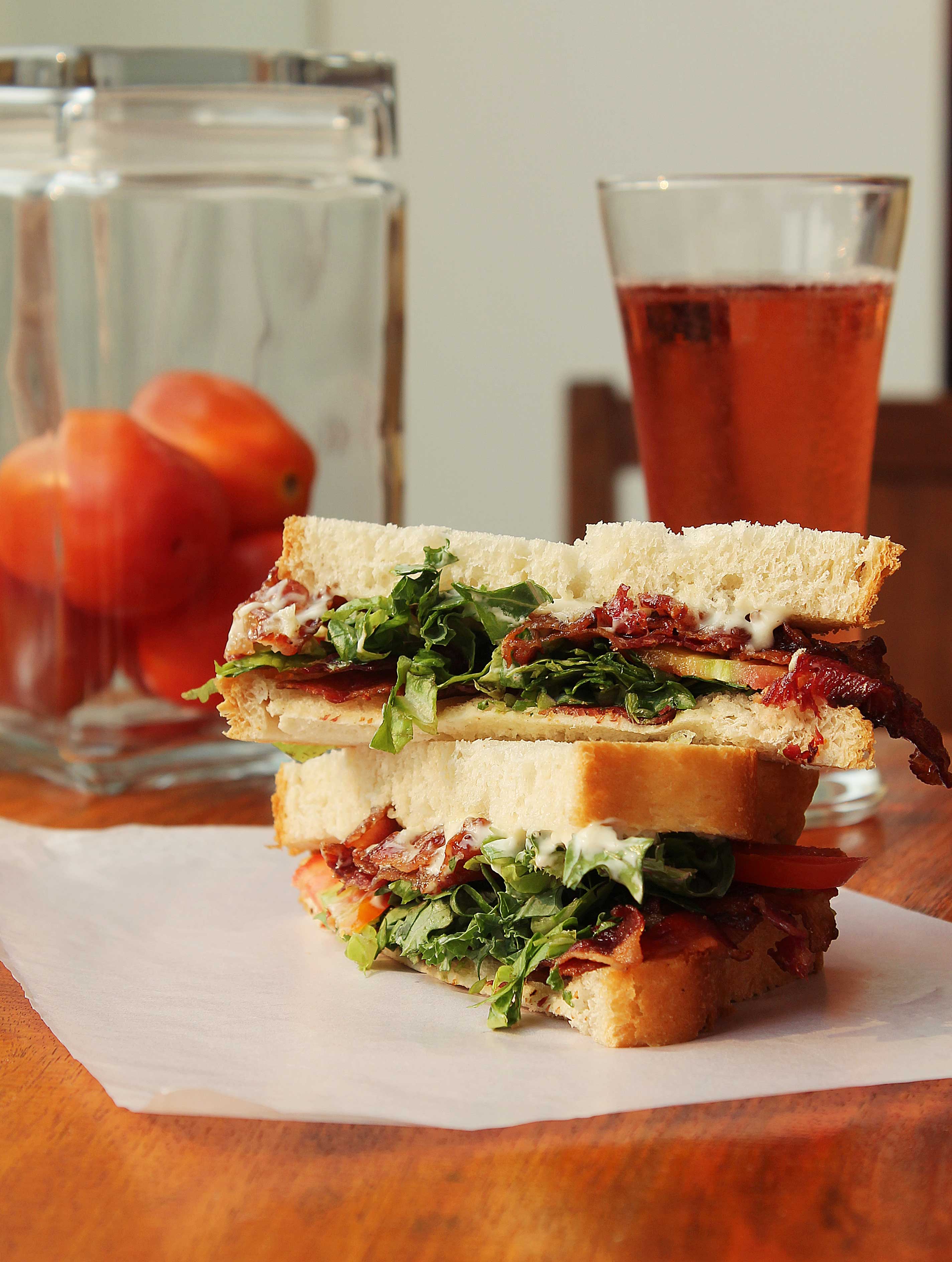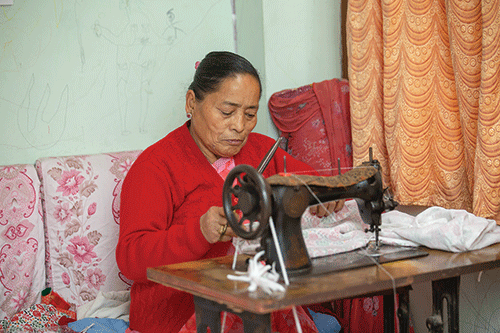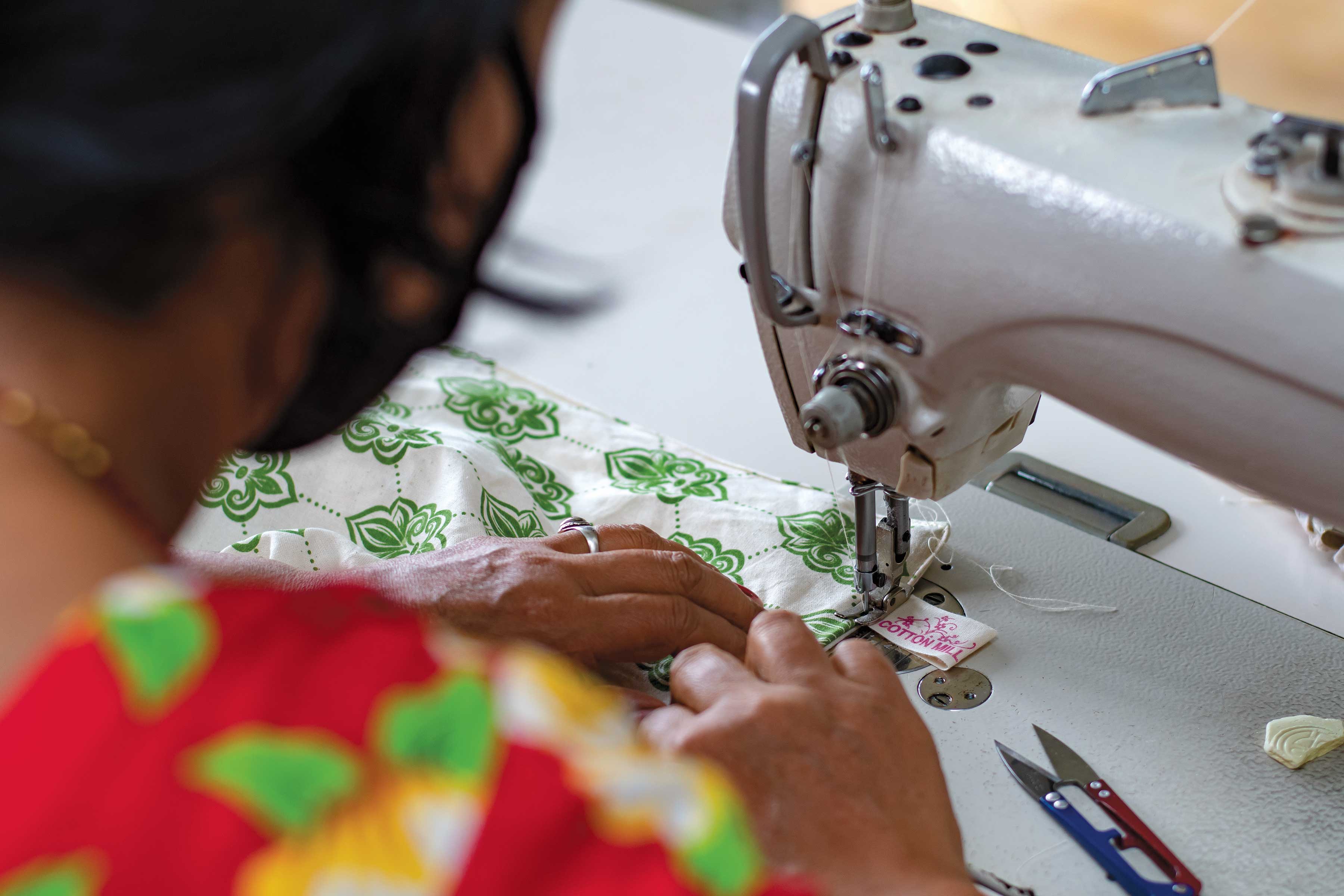.jpg) Bhaat, dahl, and tarkari was fine as far as it went, but for the swarms of tourists visiting Nepal, and especially Kathmandu, in the 1970s and 1980s, they also missed the wholesome breads, rolls, pastries, and other bakery items that they were so used to back home in America and Europe. At the time, Kathmandu was pretty much devoid of fine bakeries, and so, in due time, some enterprising German tourists took it upon themselves to teach the fine art of making bread to the locals. Germany, in case you don’t know, is crazy about bread, and has the largest variety of breads anywhere. In fact, their bread culture has been listed in UNESCO’s Intangible Cultural Heritage list. So, expect to find many different kinds of bread in any ‘Germany Bakery’ made of a variety of whole grains, such as buckwheat, rye, oat, barley, maize, etc.
Bhaat, dahl, and tarkari was fine as far as it went, but for the swarms of tourists visiting Nepal, and especially Kathmandu, in the 1970s and 1980s, they also missed the wholesome breads, rolls, pastries, and other bakery items that they were so used to back home in America and Europe. At the time, Kathmandu was pretty much devoid of fine bakeries, and so, in due time, some enterprising German tourists took it upon themselves to teach the fine art of making bread to the locals. Germany, in case you don’t know, is crazy about bread, and has the largest variety of breads anywhere. In fact, their bread culture has been listed in UNESCO’s Intangible Cultural Heritage list. So, expect to find many different kinds of bread in any ‘Germany Bakery’ made of a variety of whole grains, such as buckwheat, rye, oat, barley, maize, etc.
As far as the other staple of Westerners, meat, is concerned, it is a fact that Nepalis weren’t very into hygienic methods of slaughter, sales, or preservation, nor into the making of healthy processed meat products. And this is another area of expertise in which Germany excels, ham and sausage being as much a part of their daily diet as is bread and beer. There are many types of hams and hundreds of types of sausages in Germany, of which, thankfully, you can find some here as well, thanks to a few enterprises established by individuals trained in Germany, whose brands promise hygiene, health, and great taste.
German Bakery
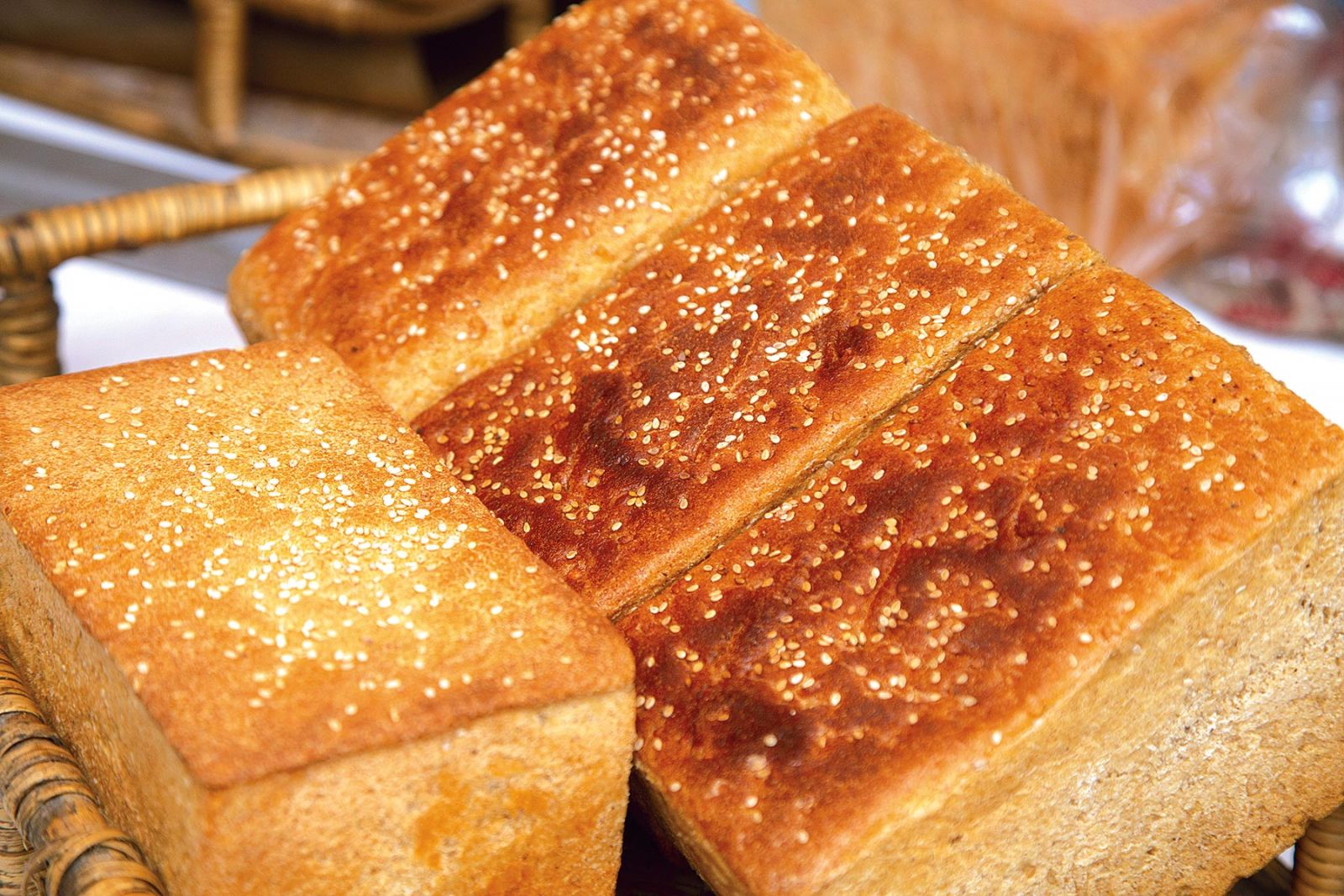 One of the oldest bakeries in the country is the German Bakery in Jawalakhel, Patan. The signboard reads ‘Woody’s Pumpernickel Germany Bakery’, to signify that this is the original German Bakery, and so distinguished it from other so-called ‘German Bakeries’ around the country. Originally established by two Germans named Woody and Norman, it has been running for more than three decades under the capable management of Mr. Shekhar Thapa. Among its many bakery
One of the oldest bakeries in the country is the German Bakery in Jawalakhel, Patan. The signboard reads ‘Woody’s Pumpernickel Germany Bakery’, to signify that this is the original German Bakery, and so distinguished it from other so-called ‘German Bakeries’ around the country. Originally established by two Germans named Woody and Norman, it has been running for more than three decades under the capable management of Mr. Shekhar Thapa. Among its many bakery 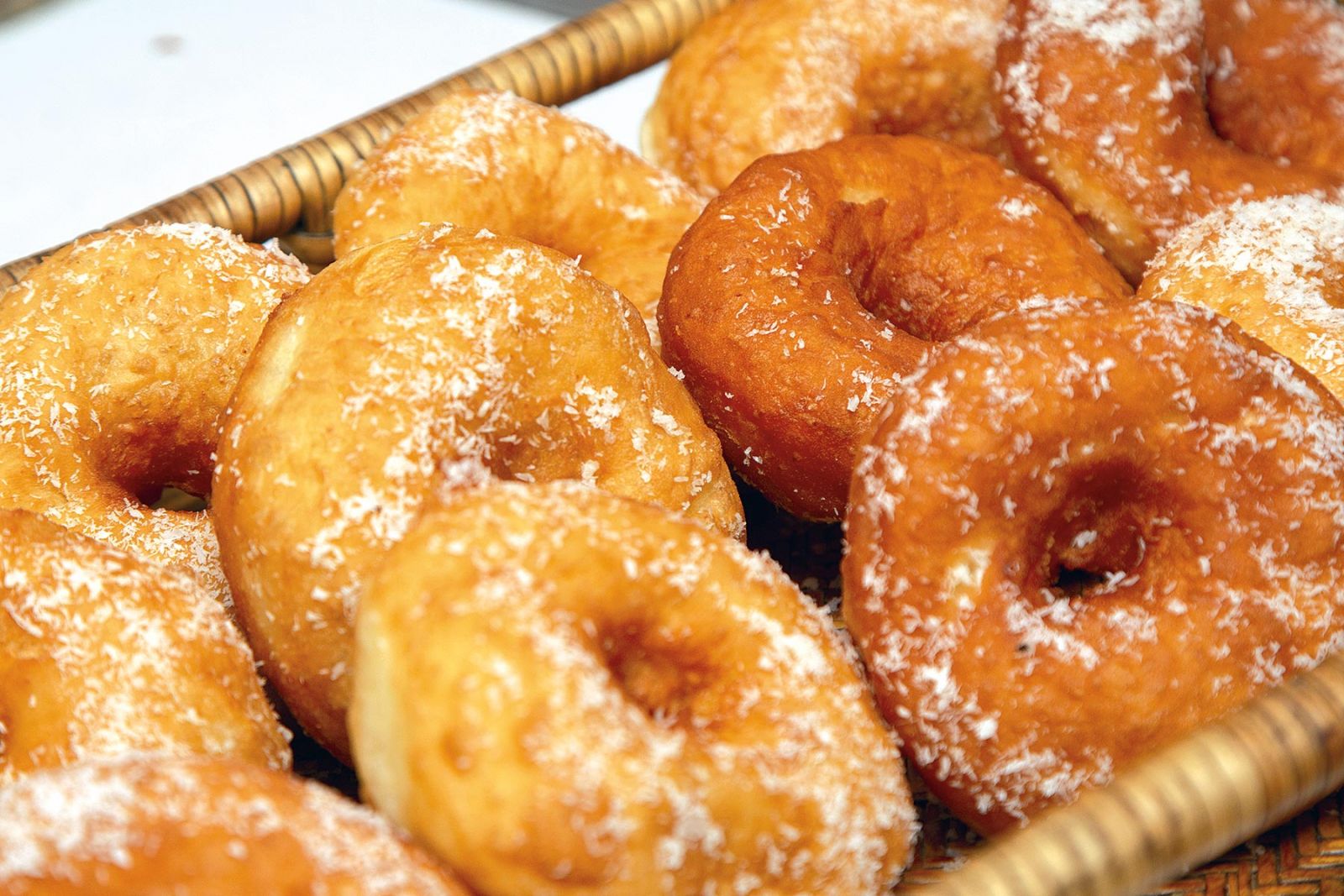 products, the Pumpernickel Bread stands out; it is claimed to be available only at Woody’s Pumpernickel Germany Bakery, and nowhere else. Made of sourdough, it is highly nutritious, as are the other breads made of other wholegrains like maize, barley, oats, etc. These are eagerly sought after by those going on treks and other strenuous adventures, as well as by those who are simply seeking a healthier staple alternative. Similarly, the bakery’s doughnuts are legendary, and among the most delectable in town. As tasty are its many other bakery products like rolls, croissants, patties, pizzas, and so on.
products, the Pumpernickel Bread stands out; it is claimed to be available only at Woody’s Pumpernickel Germany Bakery, and nowhere else. Made of sourdough, it is highly nutritious, as are the other breads made of other wholegrains like maize, barley, oats, etc. These are eagerly sought after by those going on treks and other strenuous adventures, as well as by those who are simply seeking a healthier staple alternative. Similarly, the bakery’s doughnuts are legendary, and among the most delectable in town. As tasty are its many other bakery products like rolls, croissants, patties, pizzas, and so on.
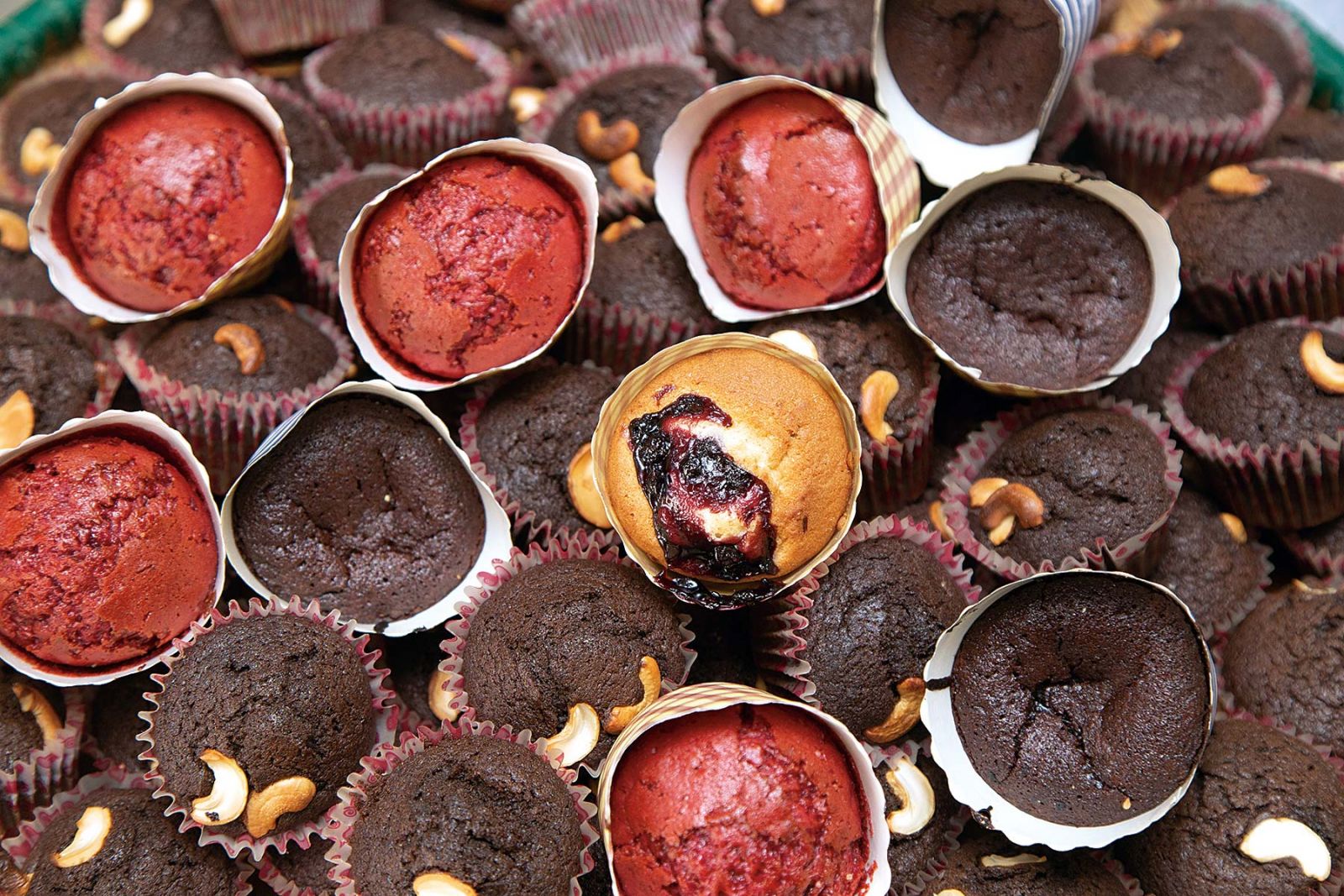 Established in 1982 by Mr. Ashok KC, Hermann Helmers Bakery & Café is located in Jhamsikhel, Patan. Entering its premises is like entering an aromatic heaven, what with the rich and wholesome aroma of freshly baked bread assailing your senses so very invitingly and appetizingly. What’s more, the bakery is also a visual treat, with so many different types of bakery products on display everywhere. Creativity seems to be a given here, given the wide variety of breads, rolls, muffins, cakes,
Established in 1982 by Mr. Ashok KC, Hermann Helmers Bakery & Café is located in Jhamsikhel, Patan. Entering its premises is like entering an aromatic heaven, what with the rich and wholesome aroma of freshly baked bread assailing your senses so very invitingly and appetizingly. What’s more, the bakery is also a visual treat, with so many different types of bakery products on display everywhere. Creativity seems to be a given here, given the wide variety of breads, rolls, muffins, cakes, 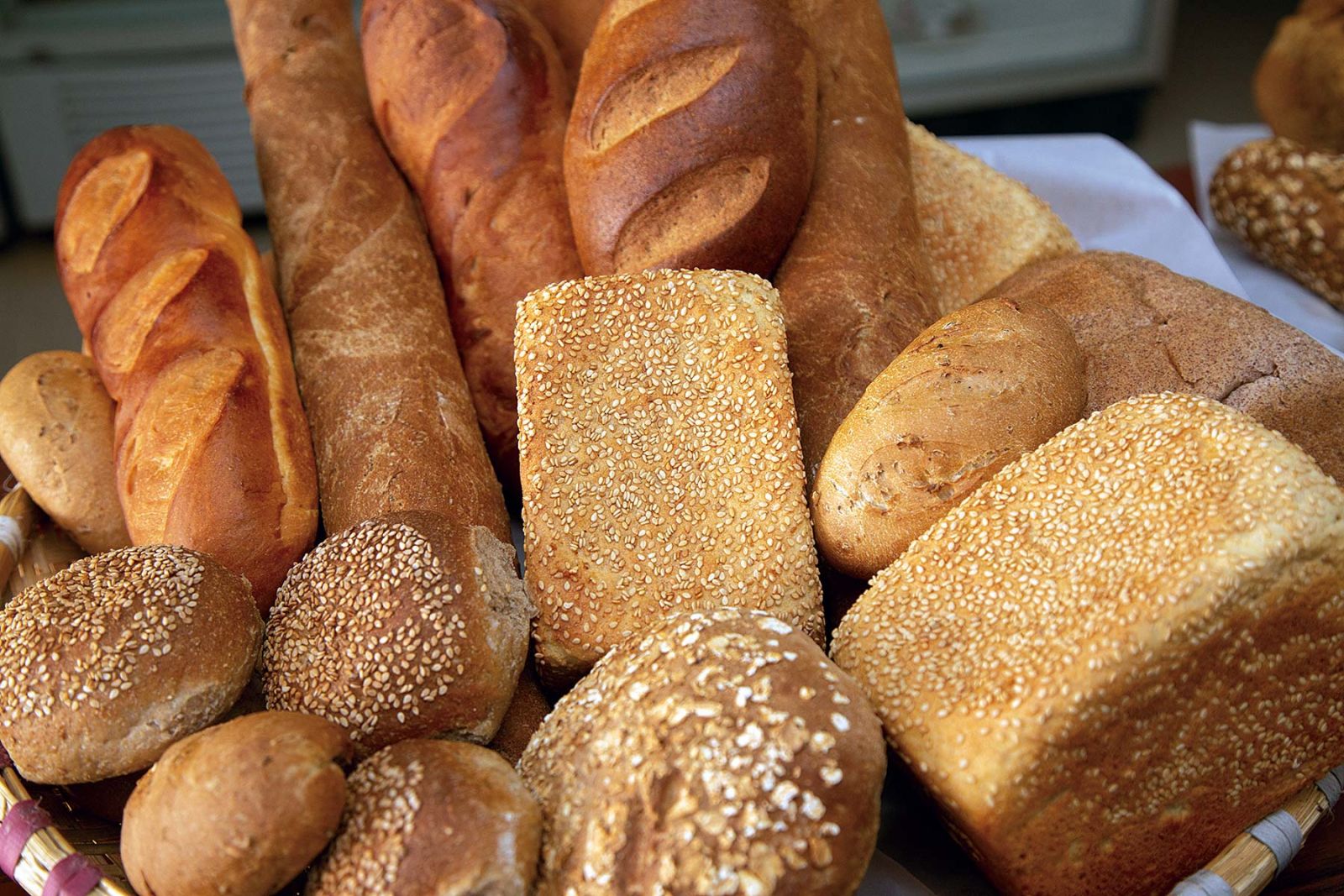 pastries, and pies and pizzas. Some items, such as the velvet cake, are pretty much unique to Helmers, but it is difficult to point out any as being particularly special, since all its products are equally tasty and healthy. Mr. Ashok KC received his bakery training in Germany, and now his sons run the business. It’s a family-run business that continues to delight its many loyal customers with a delectable variety of bakery items. So much so, that its shelves are likely to be empty come noon. So, get there in good time if you want their fresh and wholesome goodies!
pastries, and pies and pizzas. Some items, such as the velvet cake, are pretty much unique to Helmers, but it is difficult to point out any as being particularly special, since all its products are equally tasty and healthy. Mr. Ashok KC received his bakery training in Germany, and now his sons run the business. It’s a family-run business that continues to delight its many loyal customers with a delectable variety of bakery items. So much so, that its shelves are likely to be empty come noon. So, get there in good time if you want their fresh and wholesome goodies!
Nina & Hager Meat Products
Nina & Hager Meat Products is named after the owner, Mr. Chadra Tiwari’s, daughter Nina, and his technical advisor in Germany, Hager. So, that’s it about the name, but of course, it is more than merely a name today. 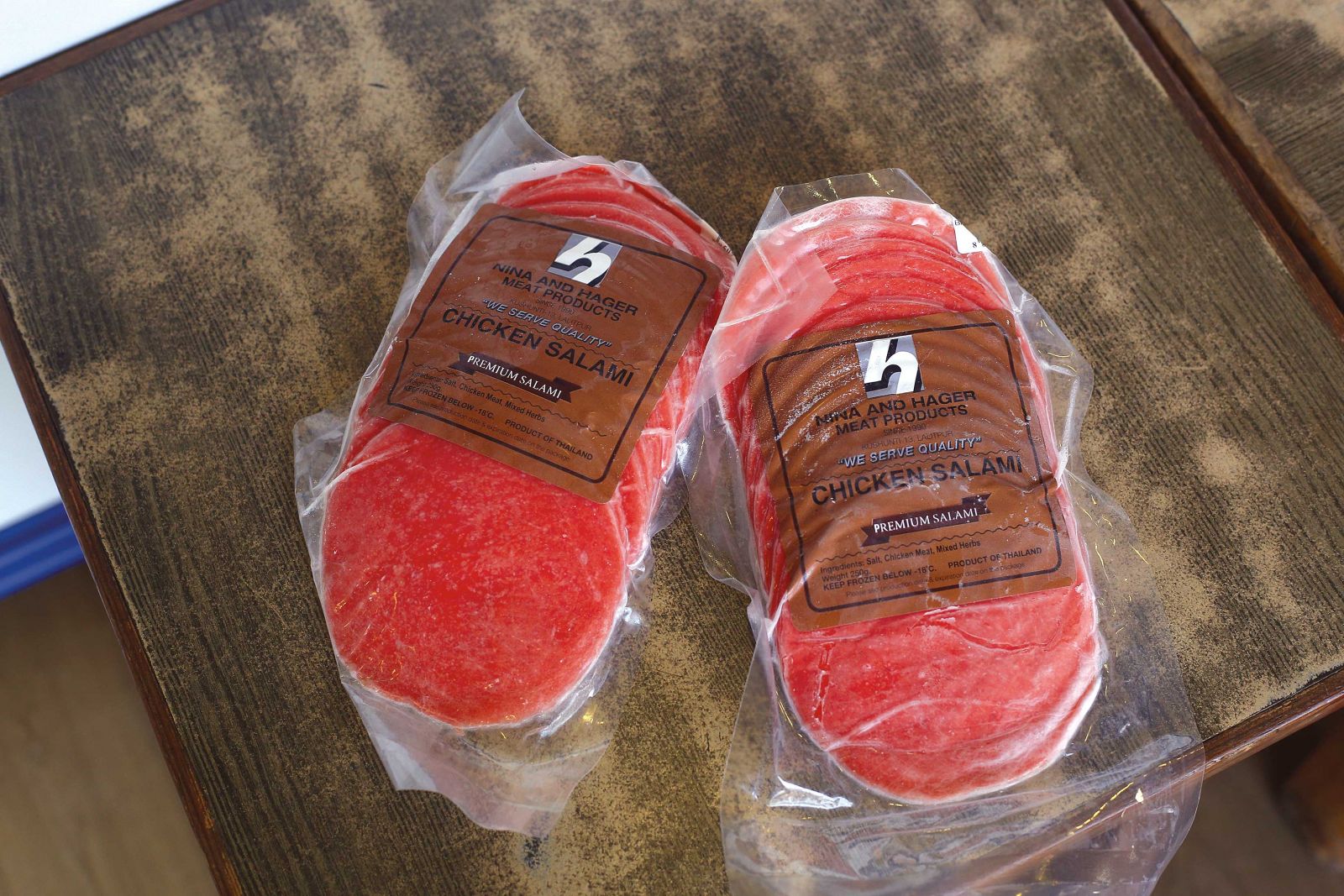 Nina & Hager has become somewhat of an iconic brand in the world of processed meat products in Nepal. Established way back in 1990 as Nina Meat Products, the going wasn’t so good in the beginning, what with the lack of awareness among the general public about health and hygiene issues regarding meat products. In 1992, Mr. Tiwari got the opportunity to do a course in livestock training in Nuremberg, Germany—a two-year scholarship. He returned armed with new knowledge and expertise, and re-started his business in 1994, making use of modern techniques and setting higher standards for his company, which he renamed Nina & Hager Meat Products. It has deservedly earned the trust of its many customers, and is very popular with all.
Nina & Hager has become somewhat of an iconic brand in the world of processed meat products in Nepal. Established way back in 1990 as Nina Meat Products, the going wasn’t so good in the beginning, what with the lack of awareness among the general public about health and hygiene issues regarding meat products. In 1992, Mr. Tiwari got the opportunity to do a course in livestock training in Nuremberg, Germany—a two-year scholarship. He returned armed with new knowledge and expertise, and re-started his business in 1994, making use of modern techniques and setting higher standards for his company, which he renamed Nina & Hager Meat Products. It has deservedly earned the trust of its many customers, and is very popular with all.



